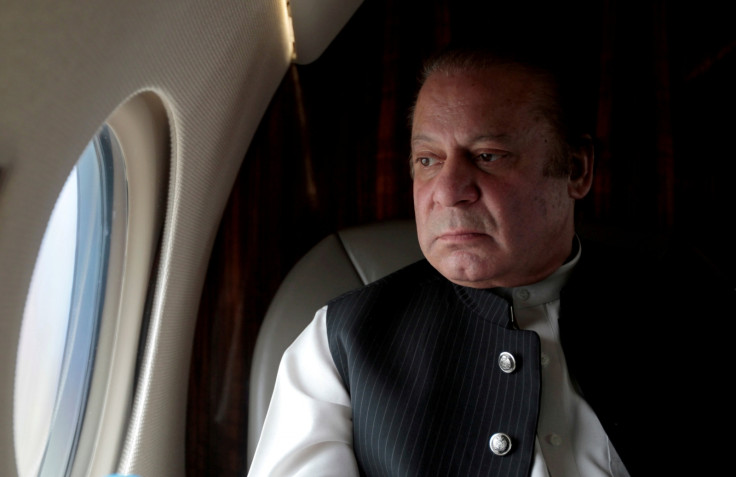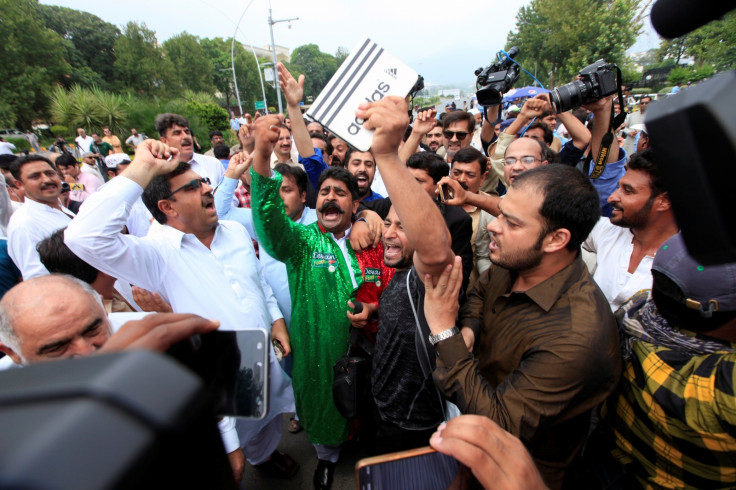Pakistan PM Nawaz Sharif resigns after Supreme Court ousts him over Panama Papers scandal
Sharif was allegedly involved in corruption and money laundering to buy properties in London in the 1990s.
Pakistan's Prime Minister Nawaz Sharif has resigned after the country's top court removed him from office over corruption and money laundering. Sharif was "disqualified" for not being honest to the nation, the court said.
The unanimous 5-0 verdict in the landmark Panama Papers case was made on Friday (28 July), bringing an end to more than a year of political drama in Pakistan. It also cut short Sharif's third term in office.
"He is no more eligible to be an honest member of the parliament, and he ceases to be holding the office of prime minister," Judge Ejaz Afzal Khan said in court, according to Reuters.
The verdict now means that the ruling party, the Pakistan Muslim League-Nawaz (PML-N), must appoint an interim leader to replace Sharif until polls are held around August next year.
"Immediately following the [Supreme Court's] verdict, Muhammad Nawaz Sharif has stood down as prime minister," Sharif's office said in statement. "All legal and constitutional options will be exercised regarding our serious differences with this verdict," Al-Jazeera reported.
This is the third time Sharif's stint in office has been cut short. His government was dissolved in April 1993 by President Ghulam Ishaq Khan, however Sharif successfully challenged that decision to become prime minister again in May. He then resigned from the post in July, forcing the removal of President Khan as well.
After re-election in 1997, he was then forced out by a military coup in 1999. He came back from exile to secure a major victory in the 2013 polls.

This latest disqualification comes roughly a year before his term was to conclude, ending his chance of creating history by becoming the first Pakistani prime minister to complete a full five-year term in office. Pakistan's powerful military has ruled the country for roughly half of its nearly 70-year-history.
The charges against Sharif centre on the so-called Panama Papers that were published last year. Over 11 million secret documents pertaining to many of the world's rich and powerful were leaked from Panamanian law firm Mossack Fonseca.
The documents claimed that Sharif and three of his four children – two sons and a daughter – owned expensive residential property in London in the 1990s and "were owners or had the right to authorise transactions for several [offshore] companies."
In a report by Joint Investigative Team (JIT), which was ordered by the top court to probe Sharif and his children's money trail, the six-member panel said there was "significant disparity" between Sharif's income and lifestyle. It also accused his children of signing forged documents to obscure ownership of a posh apartment in London.
Those implicated in the allegations include Sharif's daughter Maryam, who is tipped as the prime minister's presumptive political heir, and his two sons. However, the ousted leader denied any wrongdoing and said the claims were politically motivated.
"This is not accountability, it is revenge," Railways Minister Khawaja Saad Rafiq said on Twitter hours before the court announced the verdict. "In an effort to dislodge us, the democratic system has been made a target."

© Copyright IBTimes 2024. All rights reserved.





